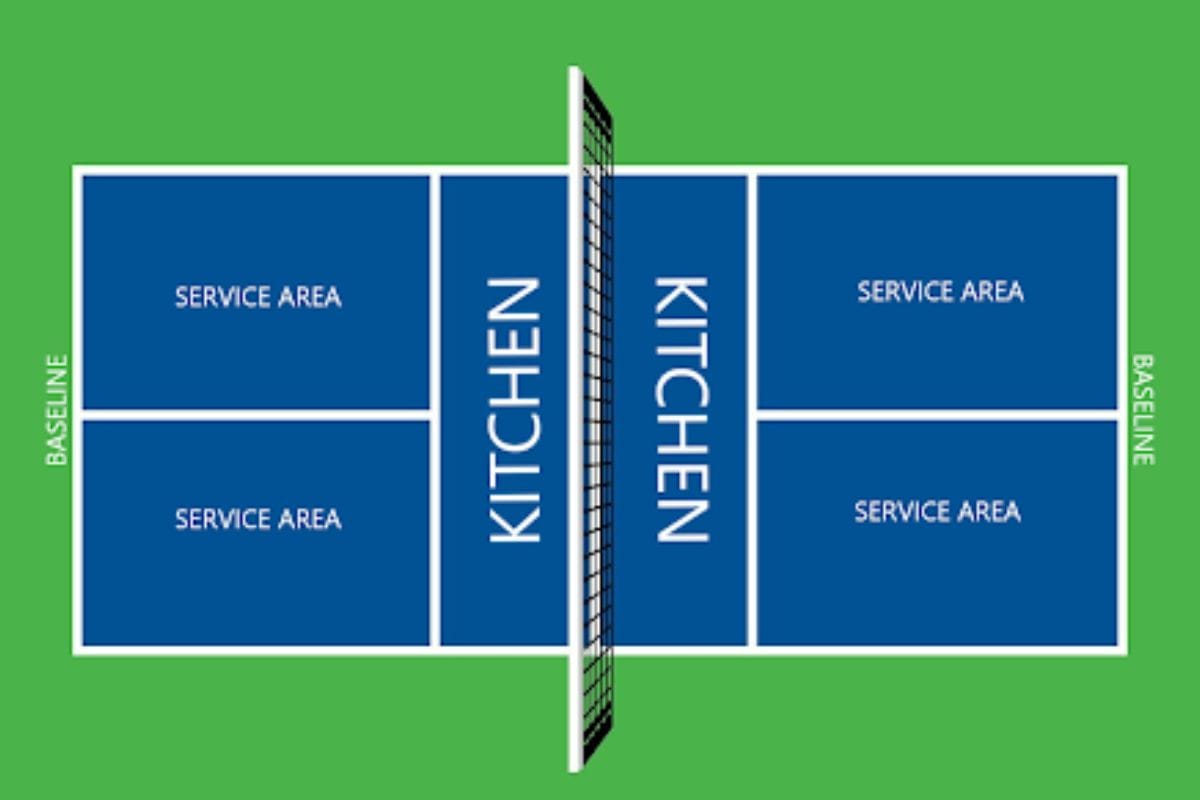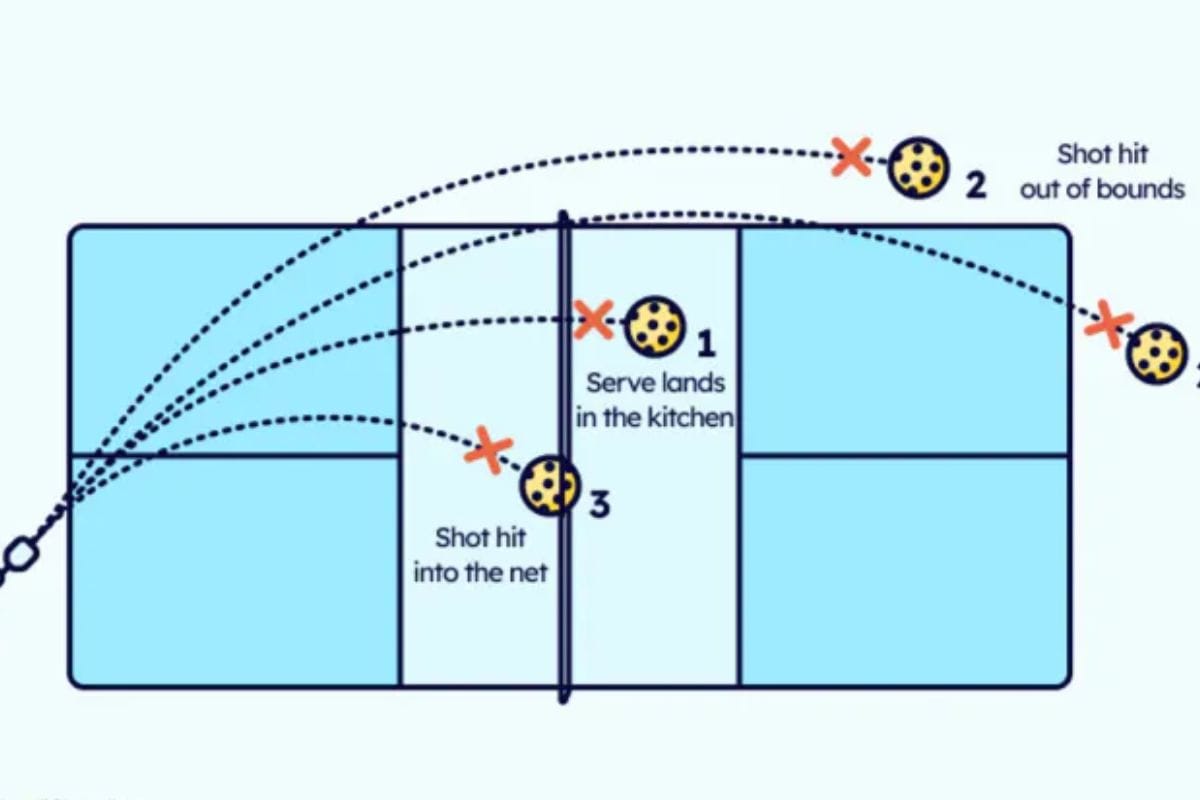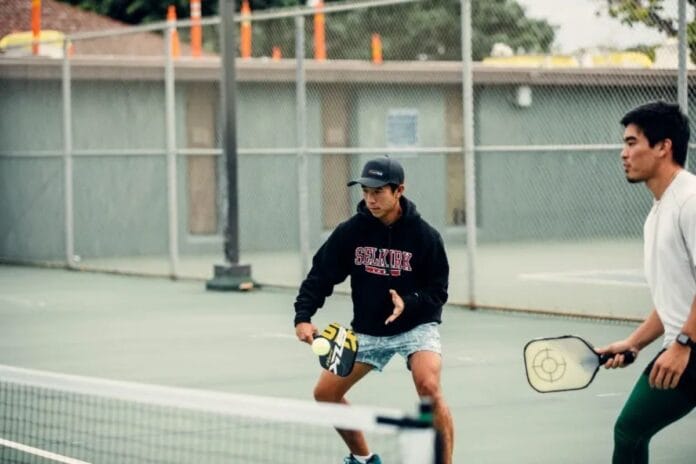Pickleball scoring system stands out from other racquet sports. Here’s an in-depth look at the key aspects:
- Game Scoring
In pickleball, games are typically played to 11 points. To win, a team must secure a 2-point lead. This format is standard for both casual matches and competitive play, ensuring that games are both exciting and fair. - Serve Rotation
Only the serving team has the opportunity to score points. If the serving team wins a rally, they score a point and continue serving. Conversely, if they lose the rally, the serve shifts to the opposing team. This rotation ensures that both teams have equal chances to serve and score. - Serve Order
At the start of each game, the serving team begins from the right side of the court. After scoring a point, the server switches to the left side. This alternating service order continues throughout the game, maintaining a balanced play structure. - Faults and Losses
A fault occurs when the serving team commits an error, such as serving out of bounds. In such cases, the team loses the serve, and the opposing team gains the right to serve. This rule emphasizes accuracy and consistency in serving. - Winning a Game
The game concludes when a team reaches 11 points and holds at least a 2-point lead. If the score ties at 10-10, play continues until one team gains a 2-point advantage, such as 12-10. This rule ensures that the game ends with a clear and decisive winner.

Key Scoring Terms
Familiarity with pickleball terminology is crucial for effective gameplay:
- Serve: This is the act of initiating play by serving the ball to the opponent. It marks the beginning of each point and sets the tone for the rally.
- Fault: A fault occurs when a player violates the rules during a rally, such as hitting the ball out of bounds. This interruption in play results in a penalty for the offending team.
- Side Out: A side out happens when the serve transitions to the opposing team. This change gives the receiving team the opportunity to serve, and it typically occurs after a point is scored or at the start of a new game.
- Even/Odd Court: The right service court is designated as the even-numbered court, while the left service court is odd-numbered. Players serve from the right court if the score is even and from the left court if the score is odd. This system helps in maintaining consistent service order.
Scoring Methods in Pickleball
Understanding how points are scored in pickleball will enhance your strategic approach:
- Direct Serve Points
A point is awarded when the serving team wins the rally with a serve that the receiving team cannot return effectively. This method rewards precision and skill in serving. - Rally Points
Points can also be scored during rallies, where teams exchange shots over the net. A rally point is granted when the opposing team commits a fault, such as hitting the ball outside the designated play area or failing to return it before it bounces twice. - Fault By the Opponent
Occasionally, points are awarded due to faults committed by the opposing team. Common faults include stepping into the non-volley zone or hitting the ball out of bounds. These errors provide opportunities to capitalize on the opponent’s mistakes.
By mastering these scoring rules and terms, players can navigate the game more effectively and enjoy the thrilling pace of pickleball. Whether you’re a newcomer or a seasoned player, understanding the scoring system will undoubtedly elevate your gameplay and enhance your experience on the court.

News in Brief: Understanding Pickleball Scoring
Pickleball, blending elements of badminton and table tennis, has a unique scoring system. Games typically run to 11 points, requiring a 2-point lead to win. Points are only scored by the serving team, which continues serving if it wins the rally; if not, the serve switches to the opposing team. Players begin serving from the right side of the court, alternating sides after scoring. Faults, such as serving out of bounds, result in a loss of serve. Scoring methods include direct serve points, rally points awarded for opponents’ mistakes, and points from faults like stepping into the non-volley zone. Understanding these rules enhances gameplay and strategy for players at any level.
ALSO READ: Utica Unveils Season Opening of New Pickleball Courts

